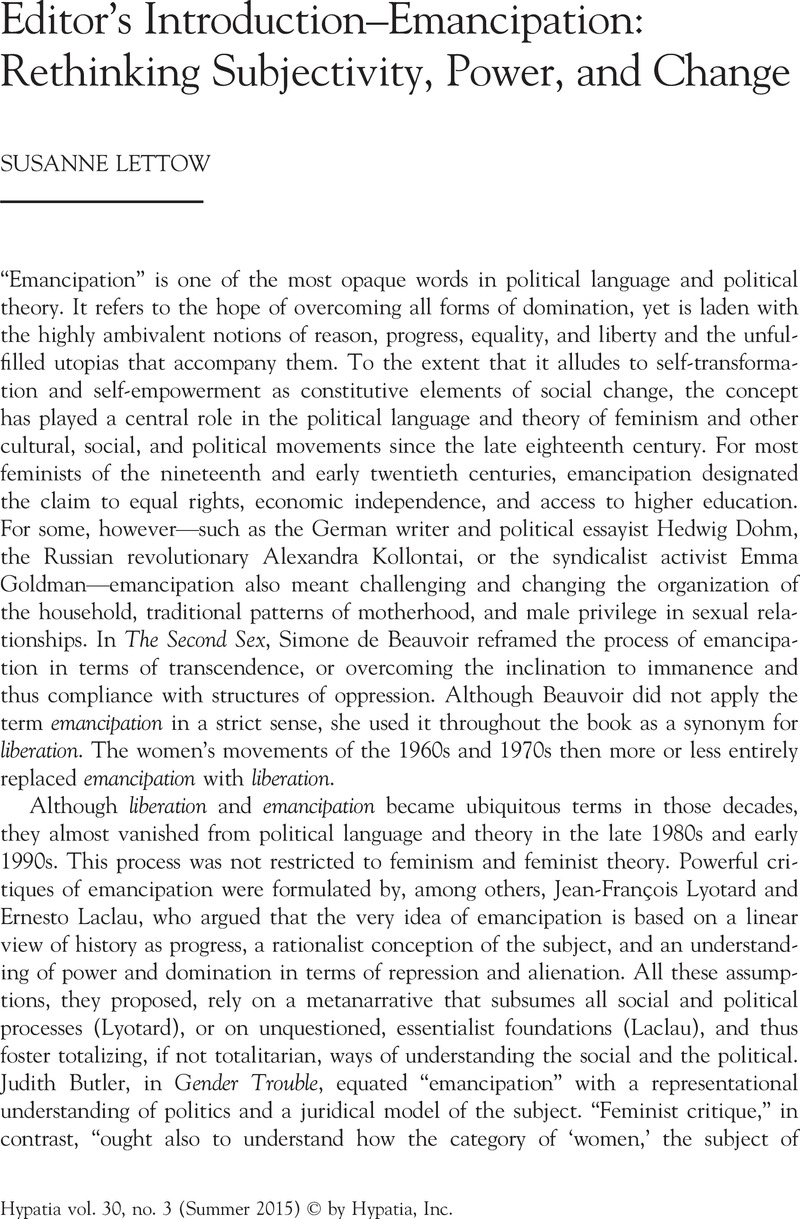Crossref Citations
This article has been cited by the following publications. This list is generated based on data provided by Crossref.
Biagini, Erika
2020.
Islamist women’s feminist subjectivities in (r)evolution: the Egyptian Muslim Sisterhood in the aftermath of the Arab uprisings.
International Feminist Journal of Politics,
Vol. 22,
Issue. 3,
p.
382.
Hutton, Martina
and
Heath, Teresa
2020.
Researching on the edge: emancipatory praxis for social justice.
European Journal of Marketing,
Vol. 54,
Issue. 11,
p.
2697.
Hoover, Elona Marjory
2020.
With Glissant in and through … translation.
GeoHumanities,
Vol. 6,
Issue. 2,
p.
432.
Terrazas, Melania
2022.
Neoliberalism, Film Noir Influences and Cultural Silence in Alan McMonagle’s
Laura Cassidy’s Walk of Fame
.
English Studies,
Vol. 103,
Issue. 8,
p.
1296.
Wojciechowska, Marta
2022.
Participation is Not Enough: An Argument for Emancipation as a Foundation of Participatory Theorising.
Representation,
Vol. 58,
Issue. 2,
p.
155.
Barros-Del Río, María Amor
2022.
Sally Rooney’s Normal People: the millennial novel of formation in recessionary Ireland.
Irish Studies Review,
Vol. 30,
Issue. 2,
p.
176.
Khoban, Zohreh
2023.
Politics of Emancipation: A Feminist Defense of Randomly Selected Political Representatives.
Critical Policy Studies,
Vol. 17,
Issue. 4,
p.
505.
Kluczewska, Karolina
2023.
Securitization and Coping Strategies of Women Sex Workers in Tajikistan.
Problems of Post-Communism,
Vol. 70,
Issue. 3,
p.
329.



